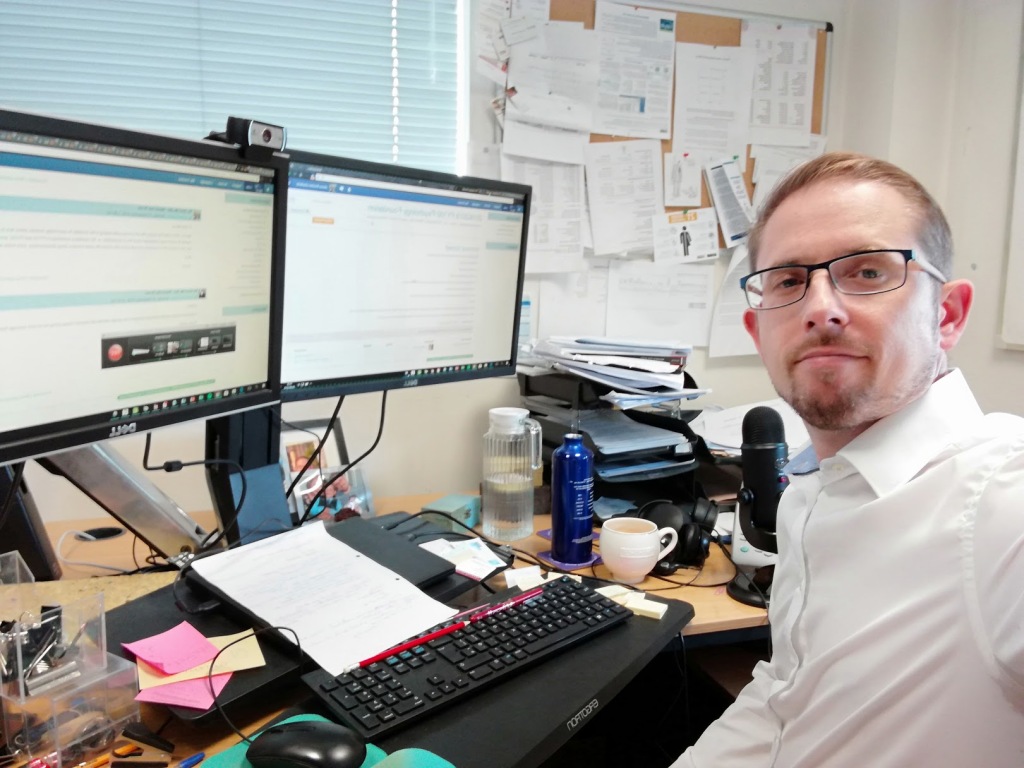As a ‘third-space’ (Whitchurch, 2008) academic working in online learning, my digital identity is inseparable from my professional identity, and also deeply ingrained in my personal life (which I keep separate through the use of separate accounts for email, social media, etc.). I identify strongly with where I work, Dublin City university’s (DCU) National Institute for Digital Learning (NIDL), and within that the Open Education Unit, as well as our brand/platform for online programmes, DCU Connected.

DCU Connected programmes run by the Open Education Unit use a teaching and learning model created specifically for online, off-campus study where small teams of full-time academic staff work with larger teams of part-time, off-campus, adjunct faculty who fulfil specific teaching and learning roles (described in Brunton et al. 2018). Most work days in online learning land are, for me, spent more inside digital technologies (using digital literacies) such as email, Google Apps, the internet, online classrooms, (traditional) social media, basic-intermediate audio/video tools like Audacity or Camtasia, YouTube for video production/delivery, institutional reporting tools and dashboards etc. than it is in physical rooms with people I share a building with. I think I am digitally literate in these, maybe digitally fluent in some. However, as someone from a subject background (psychology) rather than online learning specifically, and only working in the area for eight going on nine years, I am always hesitant to claim expertise or fluency.

When I first started working in online learning I found that digital literacies were just that, literacies. But like a lot of instances where educational concepts and approaches move into a digital realm, they often become more stark and obvious and need to be addressed more explicitly than their often invisible offline counterparts. Working in the “third space” can feel like I’m a ‘master of none’, able to do things better than explain what I’m doing and why, so I also want to solidify some of my digital literacies/work so I can confidentially speak to it. Working in online learning brings new tools, platforms and related literacies all the time. My goal is to keep chipping away at the new areas I want to expand into. This work can be overwhelming, learning about new techniques and technologies, and incorporating them systematically into a module/the programme, working with/training in (great) off-campus adjunct faculty, and providing support during piloting etc. And with limited resources. My way of dealing with the complexity is to try and use digital and offline tools to be better organised and project manage my work, both what I do individually and especially the team-based work I do with my psychology team. There is a great blog post on this from that sprang out of a discussion on Facebook. I also think it is important to frame the testing out of new digital tools etc. within a framework, e.g. a structured innovation pilot model, so what is being done is captured, for ourselves and others.
Brunton, J., Brown, M., Costello, E., & Walsh, E. (2016). Designing and developing a programme focused assessment strategy: A case study. Open Learning: The Journal of Open, Distance and e-Learning, 31 (2), 1-12.
Whitchurch, C. (2008), Shifting Identities and Blurring Boundaries: the Emergence of Third Space Professionals in UK Higher Education. Higher Education Quarterly, 62: 377-396.